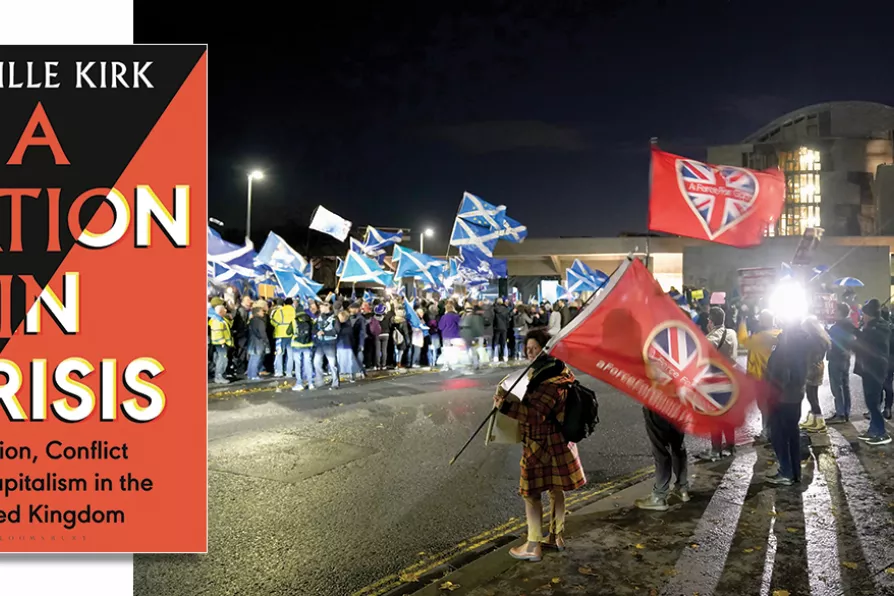TONY BURKE speaks to Gambian kora player SUNTOU SUSSO

 POLARISED OPINION: A rally outside the Scottish Parliament in Edinburgh following the decision by judges at the UK Supreme Court in London that the Scottish Parliament does not have the power to hold a second independence referendum, November 23 2022
POLARISED OPINION: A rally outside the Scottish Parliament in Edinburgh following the decision by judges at the UK Supreme Court in London that the Scottish Parliament does not have the power to hold a second independence referendum, November 23 2022
A nation in crisis: division, conflict and capitalism in the United Kingdom
Neville Kirk
Bloomsbury Academic £21.99
NEVILLE KIRK, emeritus professor of Social and Labour History at Manchester Metropolitan University, takes a look at political events in Britain from late 2016 to July 2022.
Kirk covers economic crisis, struggles over Brexit, the elections of 2017 and 2019, and Scottish politics. He examines how the Conservative, Labour and Scottish National parties behaved in these years, using a wide range of source materials.
He makes his position clear from the start: “Some, including the present author, maintain that left-of-centre ‘radical Scottishness’ in the form of the movement for Scottish independence and its desire to create of [sic] a fairer and more egalitarian society, now constitutes the main challenger and possible alternative to hegemonic Conservatism.”

Once again, our broad-based coalition outnumbered the anti-migrant protest in Faversham, but tackling the sentiment behind this wave of anger requires explaining the real reasons pushing millions into leaving their homelands, argues NICK WRIGHT

On the release of her memoir that reveals everything except politics, Sturgeon’s endless media coverage has focused on her panic attacks, sexuality and personal tragedies while ignoring her government’s many failures, writes PAULINE BRYAN

Reform’s rise speaks to a deep crisis in Establishment parties – but relies on appealing to social and economic grievances the left should make its own, argues NICK WRIGHT











